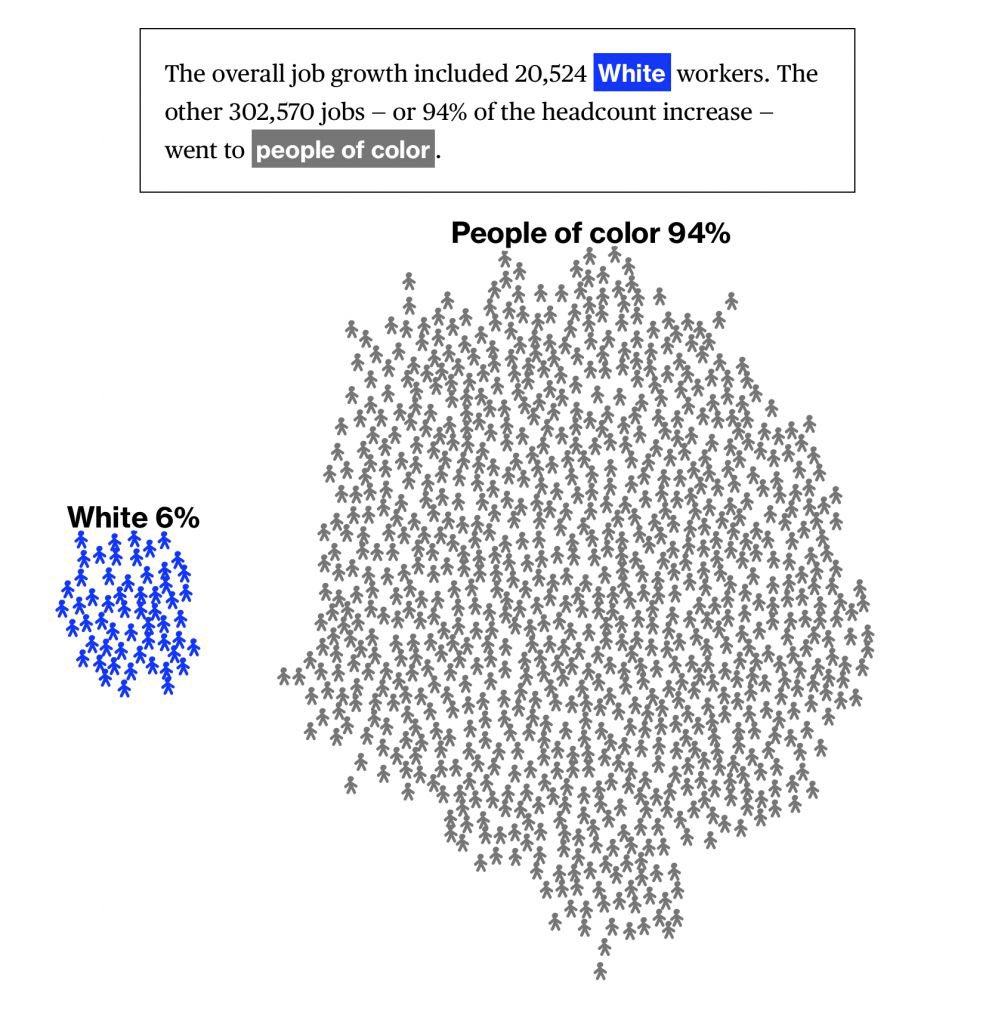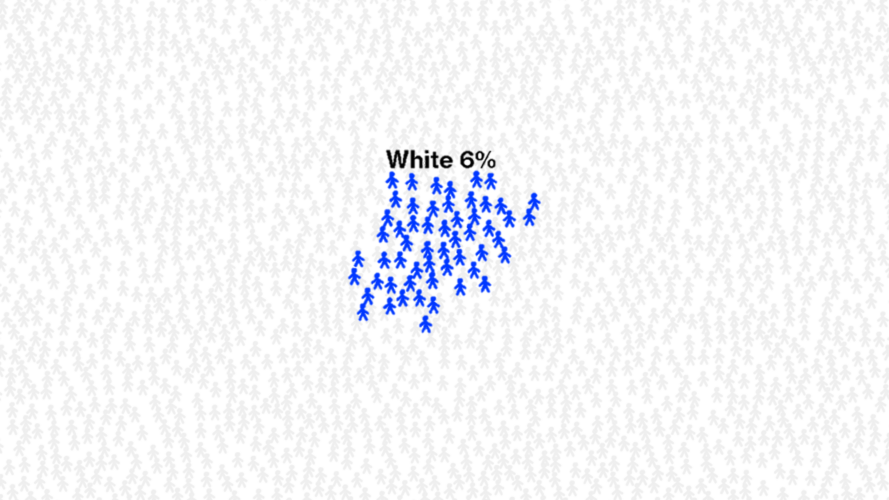In the wake of the 2020 race riots, corporate America ramped up its fight against “systemic racism” by implementing “Diversity, Equity, and Inclusion” policies in the hiring process, apparently with greater success than anyone knew. According to a new Bloomberg report, S&P 100 companies created more than 300,000 jobs in the year after George Floyd’s death…but only 6 percent of those jobs went to White applicants.
The United States Equal Employment Opportunity Commission requires all companies with 100+ employees to submit yearly reports on workforce demographics. According to Bloomberg’s analysis of reports submitted between 2020 and 2021, 88 of the S&P 100 companies increased their American workforces by a combined 323,094 people. These companies include Apple, Walmart, Wells Fargo & Co, and more. But in keeping with the DEI goals adopted across the corporate landscape in that same time period, a whopping 94 percent of those new hires—302,570 employees—were people of color.

In what Bloomberg called an effort to “overcome their historic underrepresentation,” Hispanic, Black, and Asian workers were hired by the thousands in 2021. Despite this trend’s proximity to the Black Lives Matter movement, Hispanics were by far the main beneficiaries of these hiring practices at 40 percent of the new hires. Blacks and Asians made up 23 percent and 22 percent respectively, and an additional 8 percent was distributed among other non-White races. The 2020 US Census reported Whites as 57.8 percent of the population, but Whites made up only 6 percent of the workforce additions—a total of 20,524 jobs that experts still proudly said represents “equality.”
(RELATED ARTICLE: Ibram X. Kendi’s “Anti-Racism Center” Under Investigation)
Across all levels on the corporate ladder, White people held a smaller percentage of roles in 2021 than they did in 2020, but the biggest POC gains were found in less-senior roles like sales, labor, and service work. Though the reports show that Whites still made up 74 percent of the S&P 100 workforce as of 2021, annual average hiring rates for non-Whites more than doubled since 2020.
These hiring policies came during a time of historic racial tension in the United States, when calls for a “national reckoning” on systemic racism echoed through every major institution. Even the corporate world was not immune to the controversy, and brands like Land O’ Lakes butter, Aunt Jemima syrup, and Uncle Ben’s rice overhauled their products to avoid “racial insensitivity.” Other companies, including many of those ranked in the S&P 100, pledged to double their roster of Black employees in leadership positions.
But in the years since the peak of the BLM movement, pushback against so-called “reverse racism” in corporate hiring has become commonplace. Lawsuits against major companies accuse hiring managers of discrimination against White applicants based solely on race amid calls for a return to meritocracy. This effort has coincided with the resounding condemnation of DEI and ESG (environmental, social, and governance) policies pushed by financial powerhouses like BlackRock and Vanguard, which control trillions in corporate assets.
“The only remedy to past discrimination is present discrimination. The only remedy to present discrimination is future discrimination.” — Ibram X Kendi


















Add comment